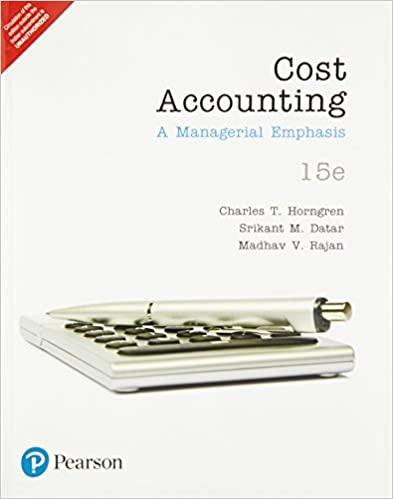Answered step by step
Verified Expert Solution
Question
1 Approved Answer
Ethics Case Buying and Selling Blood In Canada, selling body parts, such as organs, sperm and eggs, is illegal. Selling blood is not. Canadian Blood
Ethics Case Buying and Selling Blood
In Canada, selling body parts, such as organs, sperm and eggs, is illegal. Selling blood is not. Canadian Blood Services, which manages the blood supply for Canadians, neither pays for nor sells blood. It is freely available to whoever needs it A similar system operates in the United Kingdom, where the National Health Service Blood and Transplant Authority also relies on voluntary blood donations from the public. In most countries in the world, donors freely give their blood to help others. That is not the case in the United States, where blood is bought and sold like any other commodity.
In the s about Canadians were infected with HIV and hepatitis C from tainted blood and plasma that had been imported from the United States. The Krever Commission, which investigated the tainted blood scandal, found that the American donors, who had been paid, had not been adequately screened and often came from highrisk populations. One of the recommendations of the commission was that blood donations in Canada should be from unpaid donors. The findings of the Krever Commission resulted in the formation of Canadian Blood Services, a notforprofit organization that oversees the blood supply in Canada.
The plasma industry is highly competitive and international. Plasma is used not only for blood transfusion but also for the production of various pharmaceutical products. In various parts of the world, blood can be bought for as little as a dollar a pint and can be sold to hospitals for up to $ per pint.
On March a startup company called Canadian Plasma Resources opened its first blood donation clinic. The company hired forty people and spent $ million on two clinics in Toronto and a third in Hamilton. The clinics were located near homeless shelters and in poor neighborhoods. The purpose of these clinics was to buy blood. It would pay donors $ for each donation, and regular donors could donate up to once a week. The company said that it would follow all Heath Canada guidelines. Barzin Bahardoust, the CEO of Canadian Plasma Resources, said that his company will meet market demand and create local jobs. Bahardousts longterm goal was to establish a plasma manufacturing facility in Canada. This is our hope. But it is a huge investment. Not comparable to setting up a few plasma centres.
Kelly Crowe, Paying for Blood Plasma Raises New Questions, CBC News, April
Questions
Is it unethical to pay donors for making blood donations?
Is blood a commodity that can be bought and sold like any other commodity?
Is there a difference between selling blood that can be used in transfusions and selling blood that will be used to make pharmaceutical products?
Do companies, such as Canadian Plasma Resources, contribute to drug addiction and alcoholism by locating their clinics in poorer neighborhoods?
Step by Step Solution
There are 3 Steps involved in it
Step: 1

Get Instant Access to Expert-Tailored Solutions
See step-by-step solutions with expert insights and AI powered tools for academic success
Step: 2

Step: 3

Ace Your Homework with AI
Get the answers you need in no time with our AI-driven, step-by-step assistance
Get Started


